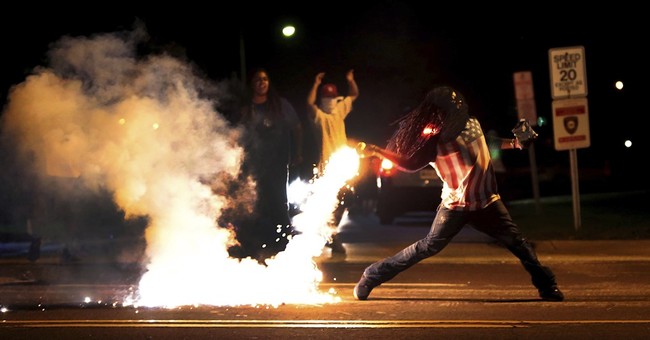
If any one African-American stands out during the 4th of July weekend, it is the most photographed man of the 19th century: Frederick Douglass.
The power within his toil for freedom – both his own as well as that for millions of American slaves. The conviction to his principles and to his faith. The devotion to his optimism, found in statements such as:
“ (I) take the Constitution according to its plain reading… found to contain principles and purposes, entirely hostile to the existence of (injustice)…(thus), I do not despair of this country…The arm of the Lord is not shortened…I, therefore, leave off (my remarks) where I began, with hope…”
And yet, his optimism as a freed, world-renowned orator was riddled with biting criticism and harsh challenges for America. He pushed presidents and townspeople alike to rise over the haughty arrogance that fostered subjective definitions of personal liberty, God-given sovereignty, and “all men are created equal”. His famous speech, “The Meaning of July Fourth for the Negro” highlighted this hybrid of eternal optimism and fierce objectivity:
“I (speak) with a sad sense of the disparity between us. I am not included within the pale of this glorious anniversary! Your high independence only reveals the immeasurable distance between us.”
“…had I the ability, and could reach the nation’s ear, I would…pour out a fiery stream of biting ridicule, blasting reproach, withering sarcasm, and stern rebuke. For it is not light that is needed, but fire; it is not the gentle shower, but thunder. We need the storm, the whirlwind, and the earthquake. The feeling of the nation must be quickened; the conscience of the nation must be roused; the propriety of the nation must be startled; the hypocrisy of the nation must be exposed…”
If any Black man could match the eloquence, righteous indignation, and optimism for a better America, it was one who sat in a jail cell some 100 years later, cajoling his fellow ministers to fulfill their moral and secular obligations as leaders.
“We have waited for more than 340 years for our constitutional and God given rights,” Dr. Martin Luther King, Jr. penned from a jail cell in Birmingham in 1963. Despite threats against his life (mere months before JFK was assassinated), no guarantees for success, and a creeping loneliness from within his religious community, King spoke of love, inspiration, disappointment, and provocation to justly act:
“In the midst of blatant injustices inflicted upon the Negro, I have watched White churchmen stand on the sideline and mouth pious irrelevancies and sanctimonious trivialities… I must confess…I have been gravely disappointed with the White moderate. I have almost reached the regrettable conclusion that the Negro’s great stumbling block… is not the White Citizen’s Counciler or the Ku Klux Klanner, but the White moderate, who is more devoted to ‘order’ than to justice; who prefers a negative peace which is the absence of tension to a positive peace which is the presence of justice; who constantly says: ‘I agree with you in the goal you seek, but I cannot agree with your methods of direct action’; who paternalistically believes he can set the timetable for another man’s freedom; who lives by a mythical concept of time and who constantly advises the Negro to wait for a ‘more convenient season.’ In deep disappointment I have wept… (yet) there can be no deep disappointment where there is not deep love…”
“They (i.e., Americans fighting for equality) have carved a tunnel of hope through the dark mountain of disappointment…I have no despair about the future…(w)e will reach the goal of freedom…because the goal of America is freedom…(w)e will win our freedom because the sacred heritage of our nation and the eternal will of God are embodied in our echoing demands (for equality)…”
Two historic Americans – one speaking on the duality of American liberty in his times, the other speaking on the duality of American citizenship in his day– touched upon where we sit as a nation currently. They also gave us direction, examples in courage, and energy from the grave to continue the just fight appropriately.
We can have both pride in America and a harsh critique of our woeful and enduring inequalities. We can have both hope for America and anguish over ongoing broken promises throughout the years. We can both drain the swamp in Washington, DC and recognize that there is a swampiness in how police unions stifle necessary reforms, teachers unions limit education equity, and local fiefdoms create legislators-for-life that halt good policy for the sake of winning elections. We can both protest wrongdoing in our country and honor the everyday best that has reverberated across America for decades – even as we aggressively rectify our collective and personal flaws.
Like Douglass and King, we sit at a crossroads in our nation’s history. On this 4th of July weekend, it is imperative that we do not shy away from the contemporary mirror that our society’s woes have coalesced into this year. It is necessary that we bravely act, not as those who actively acknowledge history, but as Americans who actively create a better history for our progeny each day. It is vital that we face and temper the tensions that continue to dog us. Due to the pandemic, the presidential election, race relations and protests, and double-digit unemployment, we must press on with a fervent commitment to intellectual honesty and a compassionate approach to fierce debates.
Many Americans believe aspects of the American Dream – attributes such as accrued economic prosperity, civic equality regardless of color or creed, and status on the world stage – are lost. Many world powers challenge the United States in ways that tempt economic, technological, or militaristic warfare. Yet, despite the vulnerabilities of confidence, faith, and substance that we collectively endure as a nation, we are still required to stare truthfully at the flaws that wound us. It is the only way for us to also become the salve that comforts and eventually heals us. Like Douglass and King, we must speak with a tone that strips away the false notions that insulate us from procuring an inclusive justice. Yet, also like them, we must project our voices in a way that facilitates transformative results in this time of upheaval. Policy proposals must be bold and implementable. Bold leadership must be striking and unifying. Winning strategies must both capture the historic moment before us and embrace the moral good for generations to come. Patriotism must both honor our Constitution fully and proudly honor our flag.
It would be very easy to be depressed and disillusioned this Independence Day Weekend – especially when looking at the woes that 2020 has piled upon us. And yet, if Douglass and King showed us anything for our modern times, it is this: that if the most unlikely of American history-makers can both critique a nation and champion its future concurrently on the path to a more Perfect Union, we the beneficiaries of their efforts are fully capable of continuing the work as “proud-to-be” Americans – even as the nation seems to be exploding around us along with the rockets’ red glare.
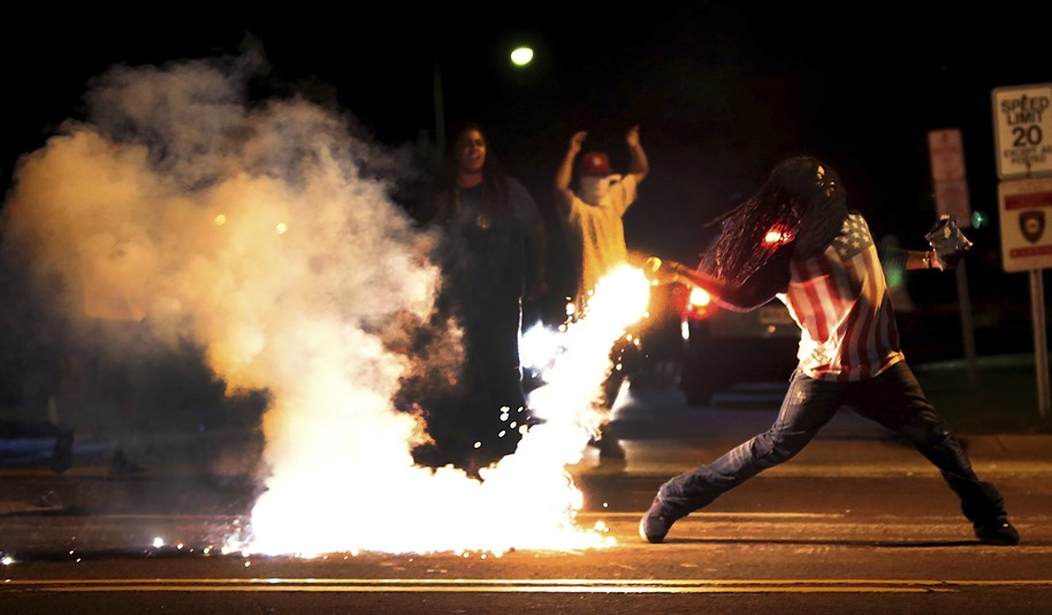
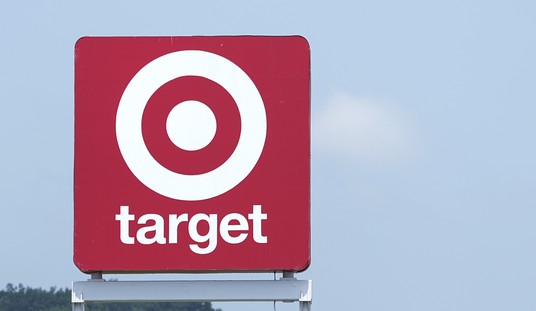






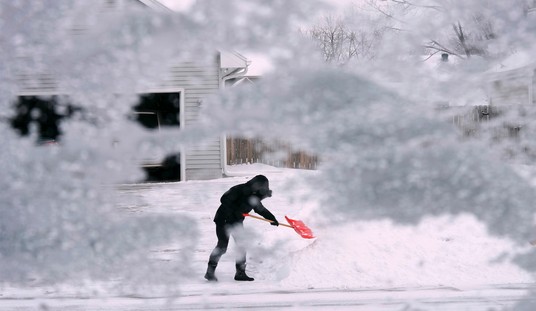

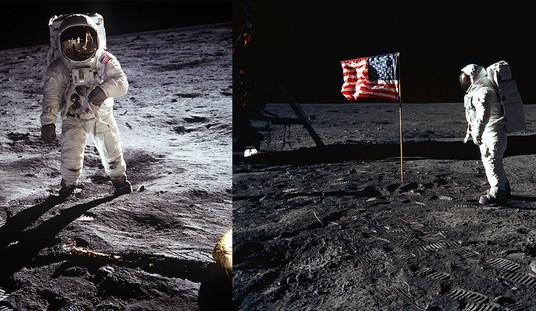


Join the conversation as a VIP Member